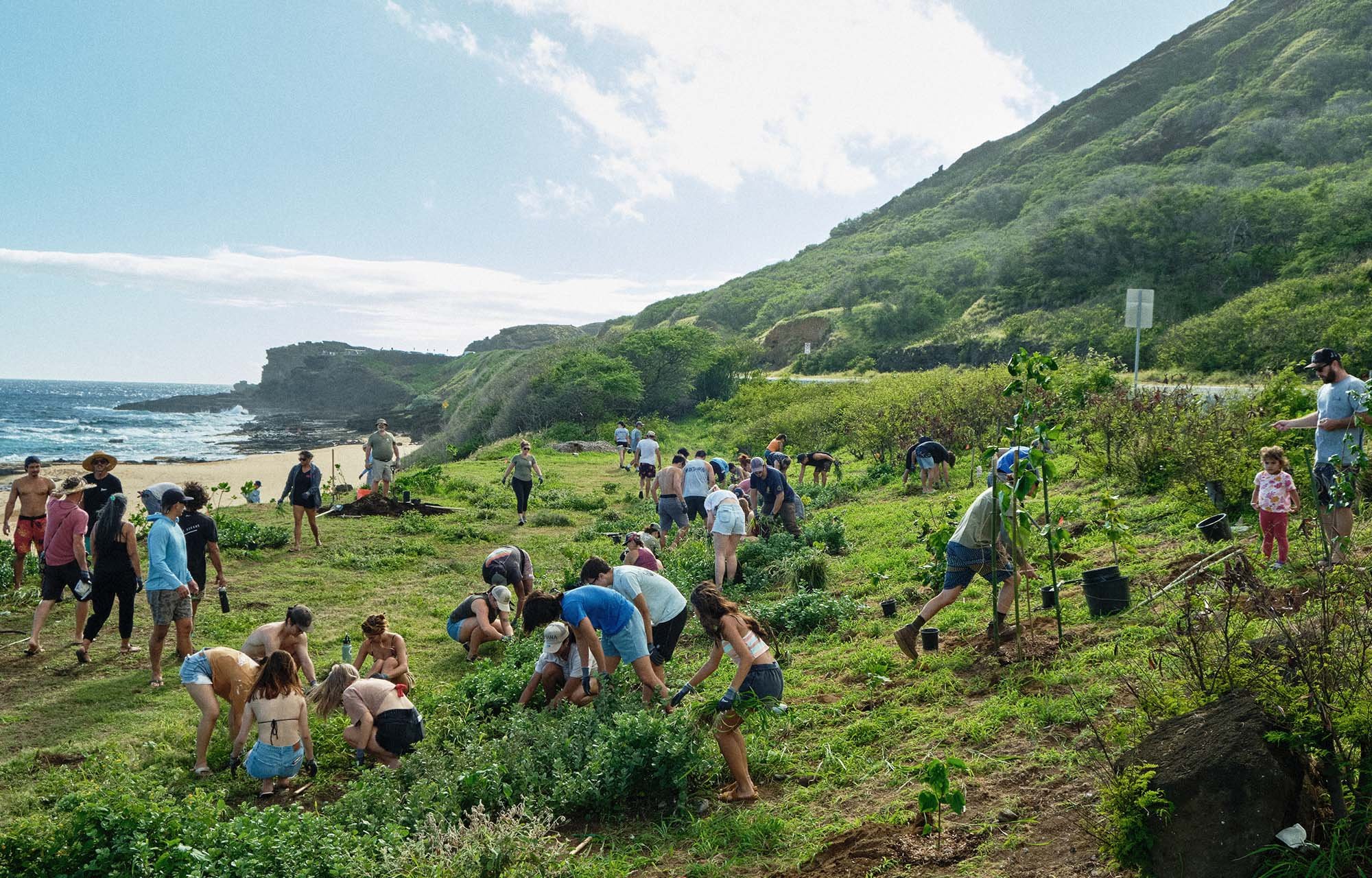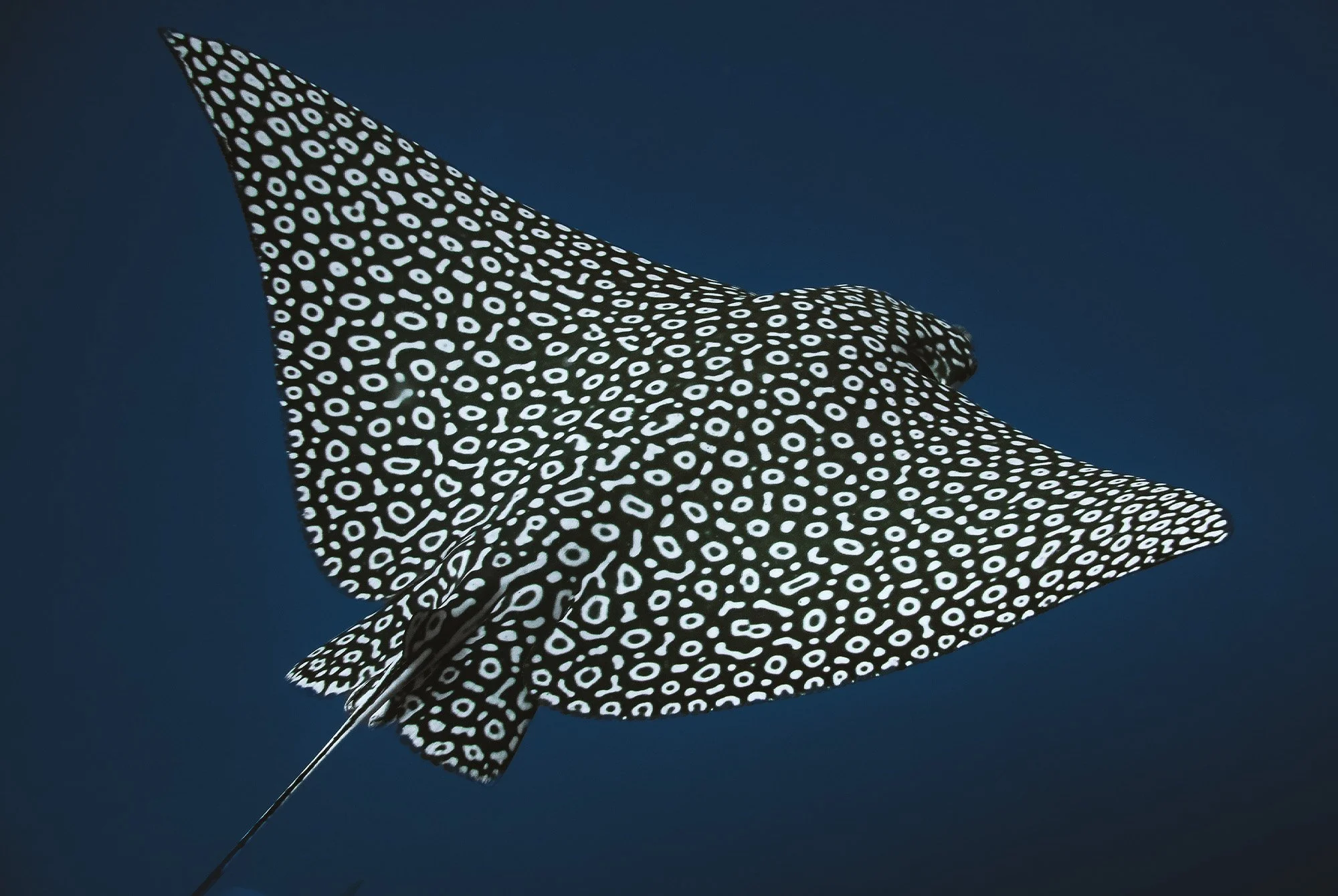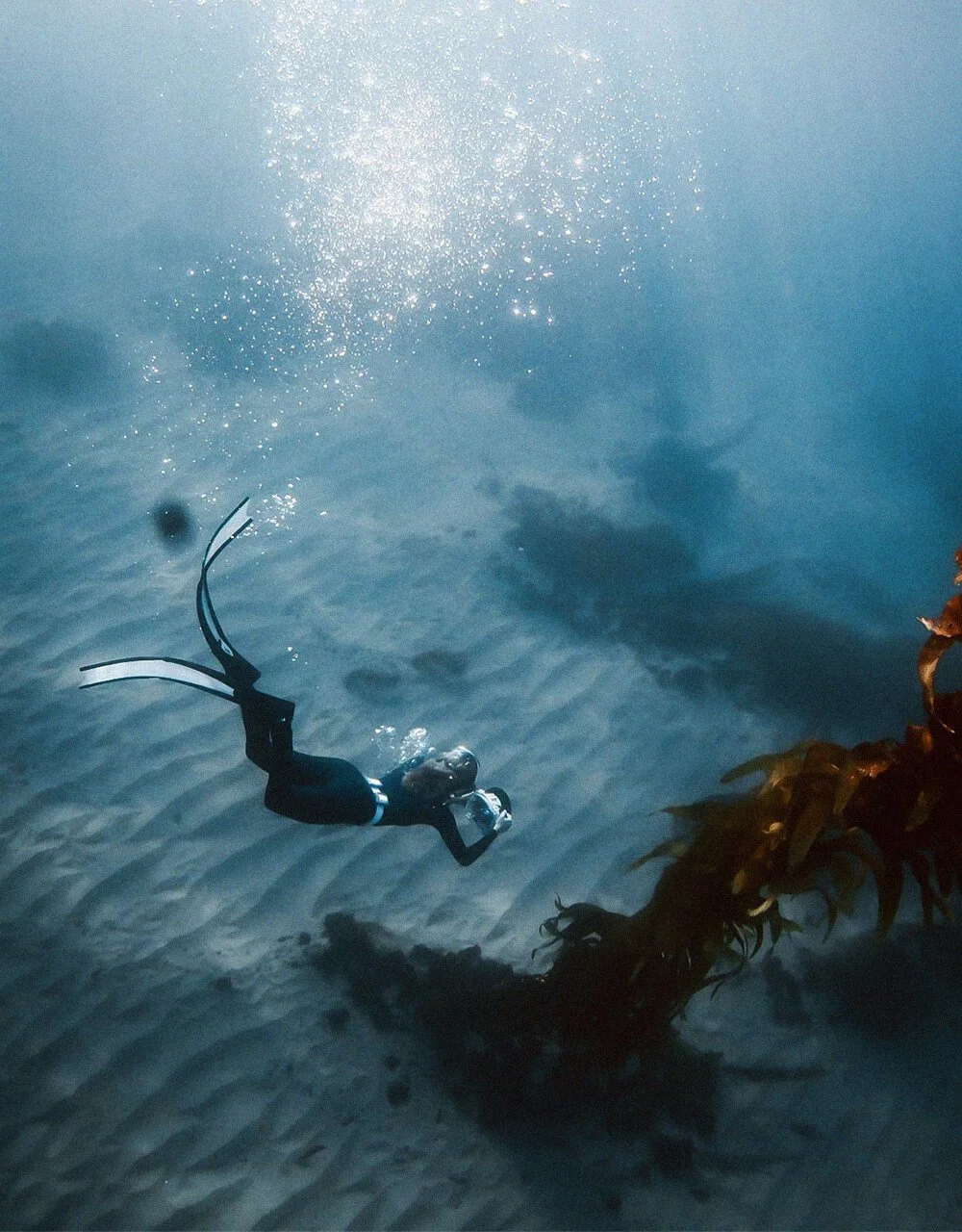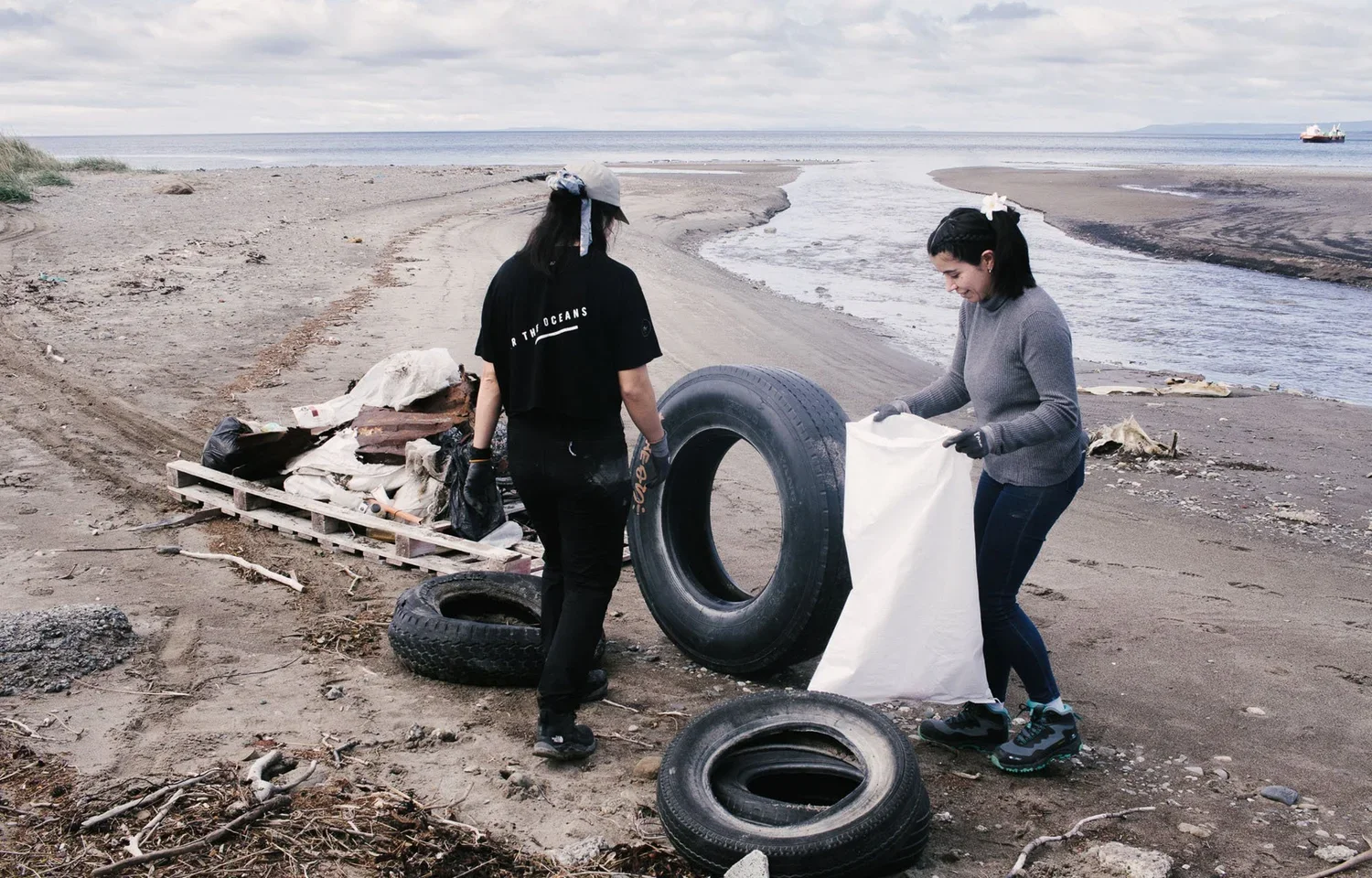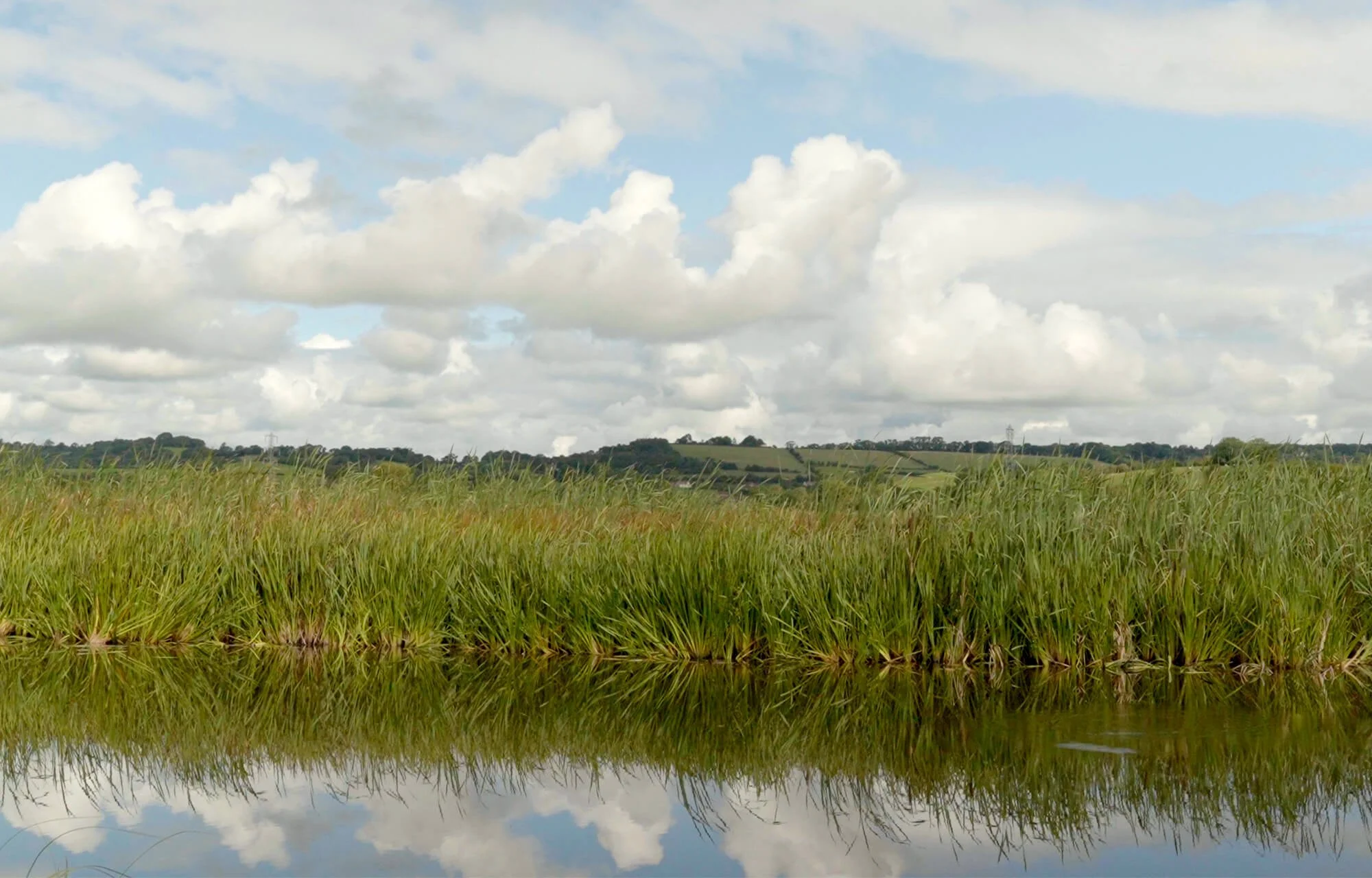FIELD NOTES – WORLD OCEANS DAY
FROM THE coastline of sri lanka to the PEAK of Corcovado mountain in rio de janeiro, Parley’s teams and volunteers mobilized around world oceans day on june 8 for an unprecedented series of cleanups, events and classes – #fortheoceans. HERE ARE JUST A FEW HIGHLIGHTS from this inspiring day of global action.
Brazil
TURNING AN ICON BLUE FOR THE OCEANS
As dusk fell over Rio de Janeiro on the evening of June 8th, World Oceans Day came to a spectacular conclusion as Parley Brazil and guests lit up the city’s world famous Christ the Redeemer statue to highlight the oceans movement. The Corcovado monument, a World Heritage Site and cultural icon of Rio, was illuminated in a striking blue color representing the sea – transforming this symbol of the city into a reminder about the beauty and importance of our shared oceans. In addition, our local partner Packem will be donating large silo bags to help clean and maintain the surrounding forests of Tijuca National Park.
On hand to join the celebration were world skimboard champion Lucas Fink; giant wave surfers Michelle Des Bouillons and Ian Cosenza; Carlos Belo, a community leader and founder of the social project Vivendo um Sonho Surf; Davizinho Radical, three-time champion in adapted surfing; Erica Prado, Founder of Surfistas Negras; Jeremy Casebeer, professional beach volleyball player and environmentalist; Taci Abreu, Head of ESG at Grupo Soma; and more. As Guilherme Braga, Head of Partnerships at Parley Brazil, says: “having the opportunity to bring together such a comprehensive group of ocean lovers to celebrate this moment and convey this message of how present it is in our lives – it’s something unique.”
Elsewhere in Brazil, our team in Florianópolis participated in a big community cleanup in Ponta do Leal beach and in collaboration with Escola do Mar hosted an ocean school with 70 students from two local public schools. Teams in the northeast of Brazil, meanwhile, worked across the challenging terrain of beach and mangrove doing cleanup and coastal restoration. In total, the team’s World Oceans Day actions in the country removed more than 4,500kg of debris from the environment.
“Oceans month is always a great opportunity to bring together our network of collaborators, activists, students and volunteers,” explains Parley Brazil Director Thais Goncalves. “Not only to act for the oceans and raise awareness about the threats they face, but also to celebrate the beauty and our love together for this immense blue world, the source of all life!”
SOUTH AFRICA
INTERCEPTING PLASTIC DEBRIS FROM RIVERS
Over in South Africa, The Litterboom Project hosted a cleanup event on World Oceans Day at Beachwood Mangroves Nature Reserve, located at the mouth of the Umgeni River in Durban. This vital estuarine system, spanning 76 hectares, was proclaimed a nature reserve in 1977 and then declared a national monument in 1980. Unfortunately, it suffers from relentless pollution washing down from the Umgeni River. Volunteers from the local community, including families, environmental groups and concerned citizens came together to address this pressing issue and focused on the Umgeni Beach resulting in a substantial reduction of litter and a visibly cleaner beach and mangroves.
Despite the team’s efforts, ongoing pollution remains a significant challenge, highlighting the need for sustained and increased clean-up activities. The enthusiastic participation of community members during the World Ocean Day cleanup has inspired Litterboom to intensify their efforts. They are now gearing up for the Big Umgeni Cleanup in December: a 10-day initiative dedicated to restoring this stretch of coastline to its former glory. By involving more community members and raising public awareness, the team aims to achieve lasting change.
“This stretch of beach is always a challenge due to the high volumes of pollution but the dedication and hard work of our team and volunteers made a significant impact, and it inspires us to keep pushing forward,” explains Josh Redman, Head of Operations. “We are committed to restoring this vital stretch of coastline and protecting our natural habitats for future generations.”
AUSTRALIA
COLLABORATING TO HELP STEWARD Indigenous LANDS
Continuing their work to protect the Great Barrier Reef and other ecosystems, Parley Australia hosted a Community Coastal Cleanup at Kukujum (Ellie Point) on June 8 with the Cairns Airport Environment Team and members of the Yirrganydji (Irrukandji) people – an Indigenous Australian people of Queensland who trace their descent from the Irukandji and, as such, are the original custodians of a narrow coastal strip within Djabugay country that runs northwards from Cairns in Far North Queensland. Their traditional lifestyle was that of fishers along this coastal strip and around the river mouths, islands and seas between the Barron River and Port Douglas.
Brian Singleton, Cairns Airport Environment Manager and Yirrganydji elder, welcomed the 36 cleanup volunteers to his traditional lands and shared the historical importance of the fertile hunting and fishing grounds. He asked his ancestors for protection as we walked through the land and reminded us of the importance of taking care of country and maintaining their cultural heritage. The area is normally not open to the public so the cleanup offered a unique opportunity for the local community to visit the land and appreciate its natural, untouched beauty.
“From a distance the beach looks pristine,” explains Parley volunteer Geoff Holland, “but on closer inspection, especially along the high tide line, you find a lot of washed-up debris, mainly plastic drink bottles from the river and city. Collecting 120kg of marine debris is not surprising after an hour of cleaning. World Oceans Day is a good reminder to be conscious consumers and maintain our connection to waterways and life around the world.”
To build on this momentum, a follow-up event was arranged with Oceans 2 Earth volunteers, Parley and the Cairns Airport team on 11 June. A team of 12 participants ventured through the mangrove forest to clean up an abandoned camp and other washed up debris along the coastline of the Great Barrier Reef at Cairns Harbour. Together, they collected 468.8 kgs of debris, saving it from washing out onto the Great Barrier Reef and beyond. The team observed plenty of wildlife on the adventure: wallaby prints at a resting point, a 3m python skin recently shed, as well as human footprints of fisherman, showing how active the area remains for all forms of life. The debris collected here will be retrieved by boat on the next high tide due to the heavy weight and bulk. The cleanup team enjoyed observing the city and landscape from this unique and peaceful vantage point, listening to stories from Brian who shared his deep connection to the land and appreciation to us for taking care of it with him.
MEXICO
COLLABORATING FOR A PLASTIC-FREE CARIBBEAN
Quintana Roo stands as a beacon of biodiversity, hosting an impressive array of flora and fauna that contribute to the region’s ecological richness. The state is home to over 1,400 species of plants and around 500 species of birds, along with numerous mammal, reptile and marine species. One of the crown jewels of Quintana Roo's natural heritage is the Mesoamerican Reef, the second-largest coral reef system in the world. Spanning over 1,000 kilometers through four countries (Mexico, Belize, Guatemala and Honduras), this reef harbors an astounding variety of marine species, including over 65 species of stony coral and 500 species of fish.
As Parley Mexico director Alejandra Tellez explains: “Quintana Roo is one of the first states in Mexico to legislate the prohibition of single-use plastics in special “plastic exclusion zones” located around Natural Protected Areas and islands. However, the road for implementation of the law is a long and hard one because the regulation is not enforced by the authorities and businesses are not incentivized or penalized in any way to eliminate single-use plastics from their operations.”
To help raise awareness and take direct action, the Parley Mexico team joined forces with over ten organizations and companies and held the first massive collaborative cleanup in the Mexican Caribbean on World Oceans Day. Six simultaneous coastal cleanups were held in Cancún, Cozumel, Tulum, Isla Mujeres and Puerto Morelos. With the support of Parley for the Oceans, various non-profit organizations, including Ecocaribe, Unidos por la Madre Naturaleza, Saving our Sharks, GVI, ECOCE, The Marine Warriors, Colectivo Manglares, Snorkeling for Trash, Grupo Tortuguero del Caribe and companies like Go Kayak, Maple Scuba and Tulum Circula came together for a healthy, plastic-free Caribbean. Over 200 participants collected 604kg of waste, of which 105kg were plastics, from fragile coastal and marine landscapes.
“It was a pleasure to be part of this movement,” says Ximena Arvizu, Parley Mexico’s cleanup coordinator. “For the first time, local and international organizations joined forces to clean up the Caribbean and highlight the fragility of the oceans on such an important date – World Oceans Day.”
CHILE, SRI LANKA AND HAWAIʻI
TACKLING INVASIVE SPECIES AND PLASTIC EMERGENCIES
At the far northern end of their ocean-facing nation, the Parley Chile team joined up with local NGO Arica Unidos por el Mar (AUPM) – who have done incredible work this year, intercepting more than 20 tons of plastic debris so far. For World Oceans Day, we teamed up to clean up 692kg of debris and managed to recycle 40kg of plastic.
As country manager Rodrigo Farías Moreno explains: “When we arrived at the location after having passed through an incredible protected wetland, I could not believe what I saw. A large amount of the garbage there was from people who were just going to parties in a parking lot, and the panorama was desolate. To be honest, I did not think that with this motivated group of volunteers we could reverse the situation, but there is a small community in Arica that is growing strongly and are all committed to the sea. As Parley, we are proud to support them and continue this collaboration.”
In Hawaiʻi, our teams and volunteers returned to Wāwāmalu to continue their ongoing work to restore coastal vegetation, clear out invasive species and clean up the shoreline. As Parley Hawaiʻi director Kahi Pacarro explains: “Two years in and we've transformed the landscape, not only physically but also spiritually. Life has been brought back to this area, and the community has embraced our work. We have local community members who volunteer daily and have found purpose in the regeneration of this land. One of the most beautiful results of this work is the catalyzation of more abandoned areas being transformed into parks. We're excited for the next few years as we continue to bring native life back to this treasured area. Stay tuned.”
Over in the Indian Ocean, Parley Sri Lanka kicked off World Oceans Week with a screening of How to Change the World at the lovely Barefoot Garden Cafe in Colombo with over 50 people. The movie was followed by a panel discussion with three NGOs: Pearl Protectors, Earth Guardians and All About That Reef. The highlight was the participation of 7-year-old ocean activist Jai, who has been with Earth Guardians since he was 5. On World Oceans Day itself, the team cleaned Wellawatte Beach with around 50 people and tackled the severe monsoon-caused plastic emergency there – teaming up with the MAS Foundation, Sri Lanka's oldest diving club and All About That Reef.
“We are delighted to see so many actively cleaning our coastlines for the benefit of future generations and ocean health,” says Manoj Udawatte, Managing Director of Parley Sri Lanka. “There's still a way to go, but together we can do it.”

























